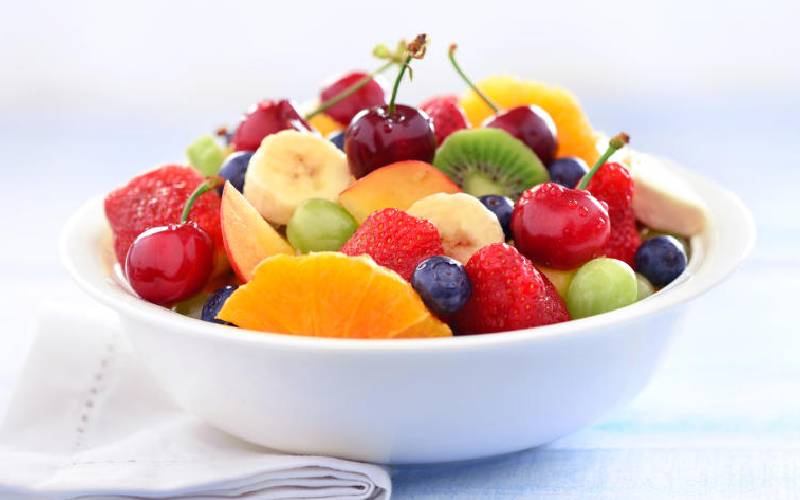×
The Standard e-Paper
Stay Informed, Even Offline

Fresh fruit salad. [File, Standard]
A fruit salad bowl is a party of colours. It presents a perfect blend of red from the berries, green from the apples, yellow from the oranges and a touch of white from the banana to balance the entire healthy equation.